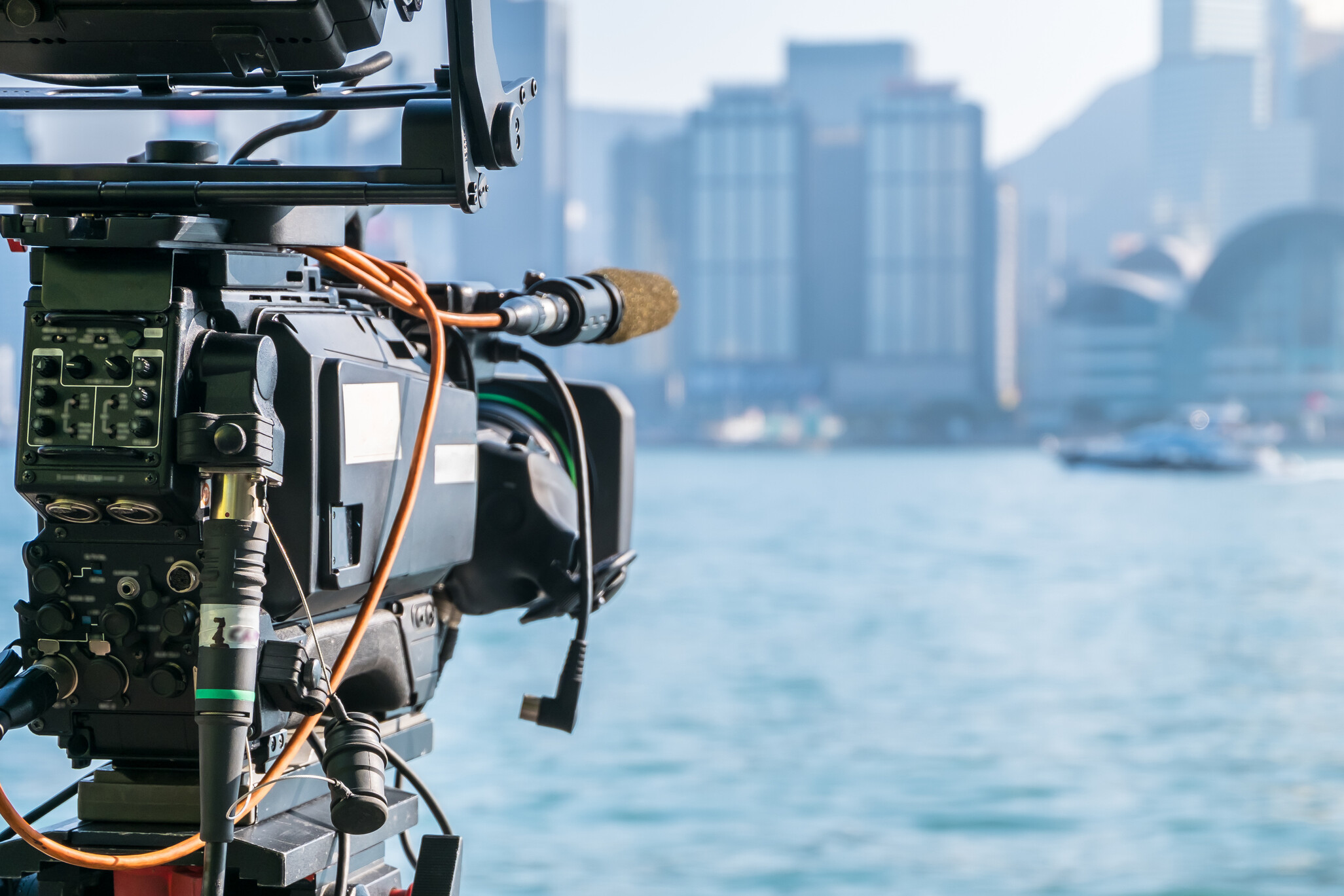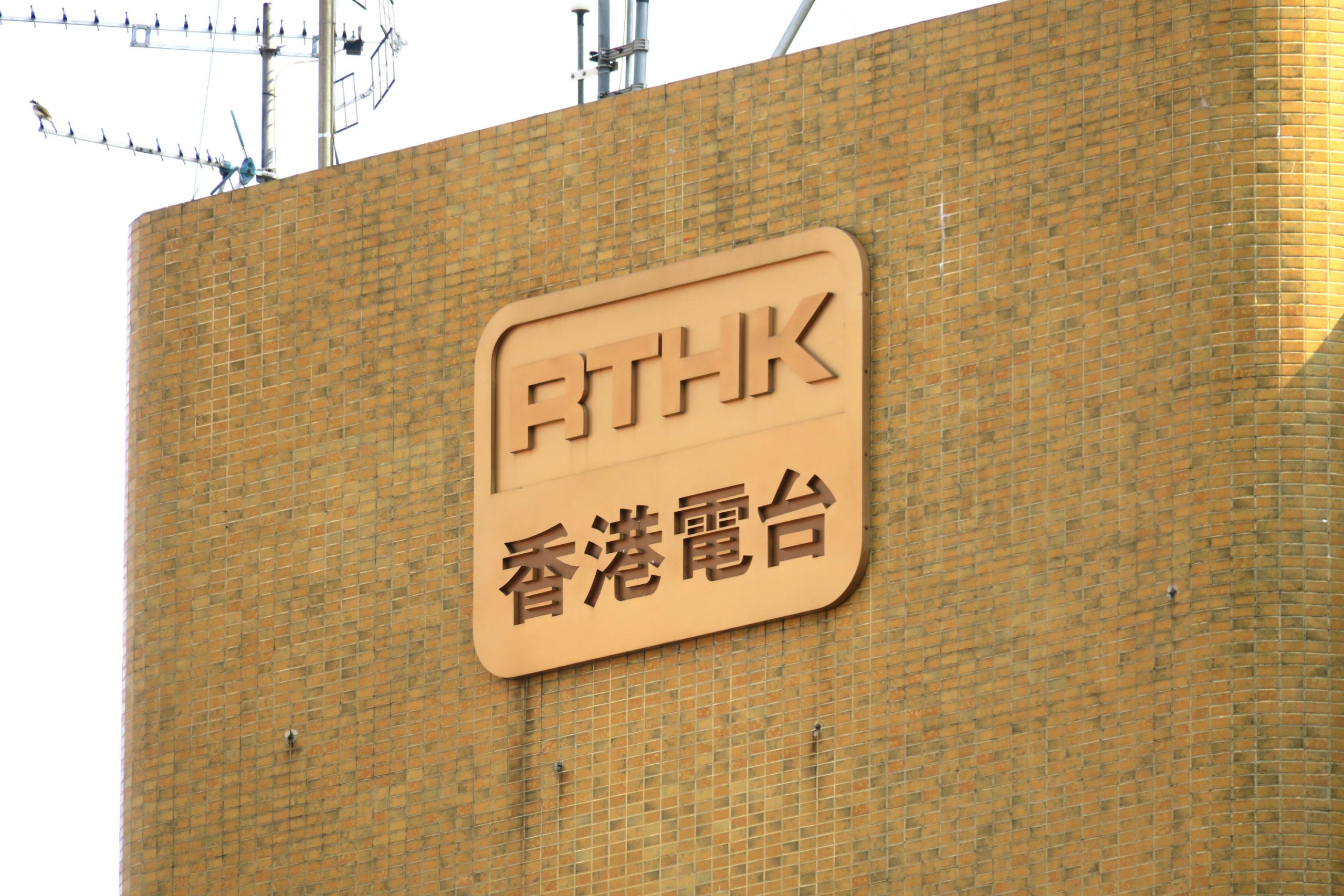The fallout from the closure of pro-democracy tabloid Apple Daily and further restrictions on public broadcaster Radio Television Hong Kong (RTHK) have left independent media in Hong Kong facing a bleak future.
The Hong Kong government’s first use of the National Security Law against the media – ultimately resulting in the closure of the renowned publication Apple Daily – sent shockwaves through the media landscape, both in Hong Kong and abroad. Apple Daily’s closure was considered a “death knell for independent media”. Weeks later, the Hong Kong Journalists Association (HKJA) published its annual report and deemed press freedom in Hong Kong be “in tatters”.
Even though condemnation of the government’s move has been widespread and swift, this has had little to no impact on alleviating the vulnerability of journalists in the Special Administrative Region (SAR), who are unsure of when next the law would be deployed against them. In response, news organisations are proceeding with caution: Stand News, for instance, has stopped accepting donations and monthly subscriptions from its readers and has also decided to remove commentaries and opinion pieces from its website for fear of being targeted.
Meanwhile, it is expected that the National Security Law, first imposed in June 2020, will continue to be used as a tool to oppress independent journalism and dissenting voices. More than 100 people have been arrested under the law and on 27 July, the first person charged – a 24-year-old man who was accused of inciting secession and terrorism – was found guilty. He potentially faces life in jail.
Amid these attacks on the general media landscape, Hong Kong’s public broadcaster continues to come under significant pressure. RTHK is being hit on two fronts: its journalists are threatened both from the National Security Law and the systematic dismantling of the broadcaster’s charter-enshrined independence. Within just a few months, the broadcaster has been significantly diminished and effectively transformed into a government mouthpiece, going against the very principles of public service media.
The Public Media Alliance will continue to report on developments within RTHK and Hong Kong and advocate for an environment where independent journalism can flourish and where public media is able to abide by its principles to inform citizens without fear of political pressures and persecution.
In other news
» Further upheaval at RTHK → Public broadcaster RTHK continues to have its independence undermined, with programme cuts, firings, and restrictive editorial policies persisting. On 12 July, it was reported that an RTHK current affairs radio show, China on the Dot, would be axed. The show was criticised by pro-Beijing supporters for its critical coverage of mainland China. Despite requests for an explanation of the show’s suspension, RTHK declined to comment. China on the Dot was just one of RTHK’s recently cut shows: current affairs programme The Pulse and political commentary show Open Line Open View were also taken off the air. Meanwhile, RTHK staff have been ordered to not use any language that references Taiwan as being separate from China or as a sovereign state. HKFP reports that staff were told to not refer to Taiwan’s leader Tsai Ing-wen as “president” nor Taiwan as a “country”, “Republic of China” or “ROC”.
» More Apple Daily staff arrested, fraud investigation launched → Since Apple Daily’s closure in late June and the arrest of several of its executives, more of its former staff have been targeted by the police. Journalist Fung Wai-kong was arrested at the airport while attempting to leave Hong Kong for the UK, becoming the seventh staff member to be detained, while former executive editor-in-chief Lam Man-chung was arrested last week. The arrests and Apple Daily’s demise have been deemed serious attacks on press freedom, with Apple Daily journalists saying “press freedom is dead in Hong Kong”. The city’s journalists are bracing for further arrests. Meanwhile, Next Digital, the parent company of the now shuttered Apple Daily, is aiming to sell its digital edition of Taiwan Apple Daily amid losses. However, further setbacks are anticipated following the announcement on 28 July by the Hong Kong government of a fraud investigation against Apple Daily’s publisher.
» “Fake news” law underway → A month after Hong Kong’s police chief called for a “fake news” law and blamed the media for declining public trust in the police force, the city has revealed its intention to move ahead with such legislation. Speaking to the Legislative Council (LegCo) on 21 July, Secretary for Home Affairs Caspar Tsui said the government was assessing foreign governments’ fake news legislation before deciding on Hong Kong’s own legal approach. The revelation comes after pro-Beijing lawmakers indicated their support of a motion which aims to legislate against online misinformation and target anti-government content. Journalist associations have criticised the proposed fake news law. In an interview with Hong Kong Free Press (HKFP), Ronson Chan, Chair of the HKJA, said the proposed law would join the National Security Law as another weapon to be used against the media, with the parameters of any possible breaches being at the discretion of the authorities.
» Carrie Lam named ‘press freedom predator’ → Hong Kong’s Chief Executive Carrie Lam was among 37 people identified as “predators of press freedom” by Reporters Without Borders (RSF). Among the examples cited for Lam’s inclusion in the 2021 list were attacks on public broadcaster RTHK and Apple Daily and the jailing of the latter’s founder, Jimmy Lai. “Lam has proved to be the puppet of Chinese President Xi Jinping, and now openly supports his predatory policies towards the media,” RSF said.
» International condemnation → Several governments and governmental representatives have decried the recent attacks on Hong Kong media, including the United States, the European Parliament, and the Media Freedom Coalition(MFC) [consisting of 21 member states, including Australia, Canada, Germany, and the United Kingdom]. But Hong Kong’s government has hit back at criticisms; it deemed the MFC’s statement “a gross interference in Hong Kong affairs and China’s internal affairs, and a flagrant violation of the rule of law and judicial independence of the SAR” and rejected comments by US President Joe Biden.
Header Image: HONG KONG – APR 09, 2020: The RTHK (Radio Television Hong Kong, 香港電台) logo on top of their Television House. RTHK is a public broadcaster providing radio and television services in Hong Kong. Credit: Alois Oscar/Shutterstock.com
Related Posts
13th May 2021
New talk show effectively transforms RTHK into a mouthpiece of the state
The Public Media Alliance condemns the…
26th April 2021
Crisis facing independent journalism in Hong Kong escalates
Troubling times ahead for Hong Kong's…



